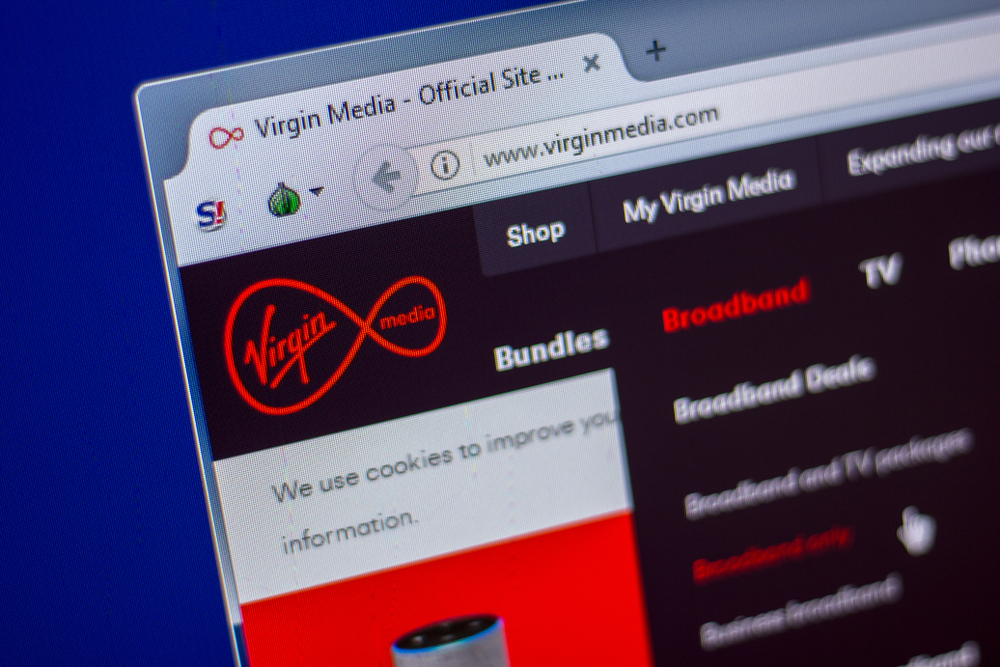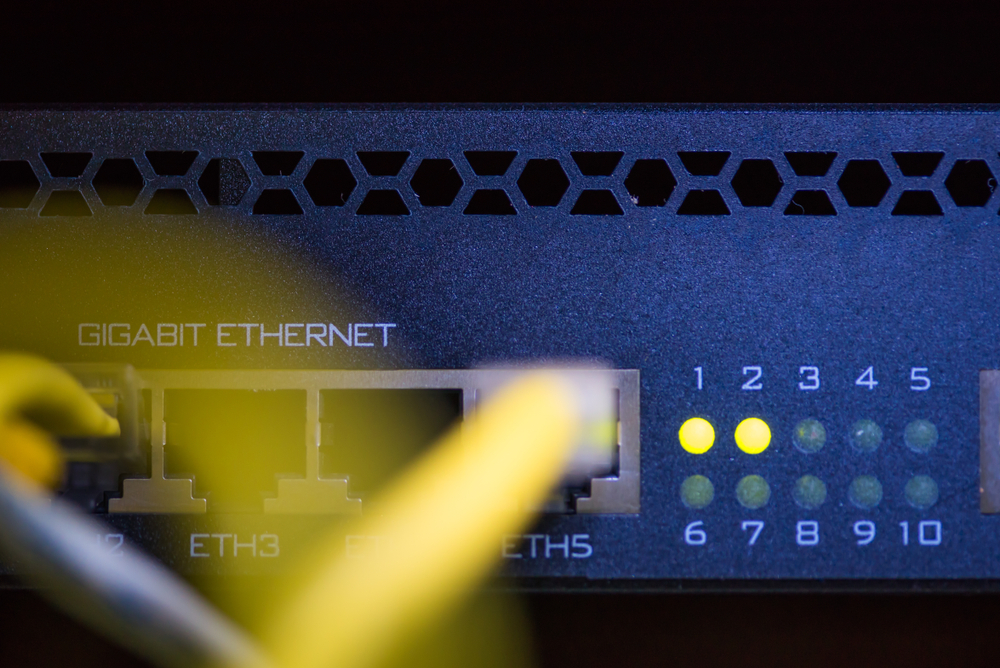Is Virgin’s Gigabit Upgrade Worth the Hype?

Virgin broadband gigabit upgrade offers too much?
Is Virgin Media promising too much and delivering too little? That’s the general consensus amongst a large number of customers, newly signed up to the broadband provider’s gigabit services.
In this blog post, we’ll look at what gigabit broadband actually is. As well as Virgin Media’s push to upgrade their network. Most importantly, however, we’ll explore whether this gigabit upgrade benefits you.
What is gigabit broadband?
It provides ultra-fast download speeds capable of at least 1 gigabit-per-second. A gigabit is equivalent to 1000 megabits per second (Mbps). To put just how fast that is into perspective; you only need 30Mbps for streaming in 4K. A mere 5Mbps is required for Netflix. Meaning, you could technically use 200 devices at the same time to stream the latest Netflix originals.
Impressive, no doubt. Necessary? Perhaps not…at least for now.
What is Project Lightning?
Essentially, Virgin Media’s push to upgrade their own cable network to gigabit capabilities. Project Lightning has so far been a hugely successful endeavour. The project started two years ago but over 90% of Virgin Broadband customers can already access gigabit speeds. With the aim of full coverage on a trajectory for success.
Virgin also account for delivering nearly two-thirds of the Government’s ambition, to bring gigabit broadband to 85% of UK properties. The aims of the Government and Virgin Media are clearly aligned. For Virgin, it’s easy to see why. After all, they’ve become the UK’s biggest provider of gigabit broadband. In spite of efforts made by Ofcom’s full-fibre four-point plan. A regulatory framework that incentivises competitive network building and huge amounts of private investments.
Virgin’s FTTP cable network is the ace up their sleeve and the reason they’ve outpaced competitors.
How will Virgin gigabit broadband benefit you?

A rapid rollout is all well and good but the most important question remains. How will gigabit broadband benefit you? We know that gamers will welcome its faster download speeds. Some games on next-generation consoles are huge! They require faster speeds to download. Otherwise, you’ll be waiting to play your game hours after you made your purchase.
Upload speeds are equally important. It’s true they take up less bandwidth to perform well; as we explore in this blog. An average upload speed of 52Mbps (that you’d find in a gigabit broadband package) is borderline ridiculous. Zoom’s minimum requirements are anywhere between 2.6-3.8Mbps for high quality to 1080p HD video.
Most laptops and other home devices are incapable of matching these speeds. HDD laptops usually handle 40-60Mbps. Broadband packages with connection speeds of 300Mbps are usually good enough. With the wrong devices, you could end up paying for unused bandwidth.
Let’s lay it on the table…
| Package | Download Speeds | Upload Speeds | Price | Contract Length |
| Virgin’s Gig1 Fibre Broadband only | 1130Mbps avg. speeds | 52Mbps avg. speeds | £62.00 per month.+ £35 setup fee | 18 Months |
| Virgin’s Gig 1 Fibre Broadband + Phone | 1130Mbps avg. speeds | 52Mbps avg. speeds | £64.00 per month.+ £35 setup fee | 18 Months |
The Thrice Criterion
Price
Consider the monthly cost in comparison to other broadband packages. Not necessarily gigabit broadband. Just good old FTTP full fibre broadband (as prices of other gigabit packages will be around the same price). Let’s compare Virgin’s gigabit packages with one of their fibre plans:
Virgin’s M100 Fibre Broadband
| 108Mbps download speeds | 10Mbps upload speeds | £44.00 per month (18 month contract only) |
We’ll throw in one of our own for good measure
Home Fibre Plus (Super-Fast)
| 80Mbps download speeds | 20Mbps upload speeds | prices vary from £33.99 per month monthly rolling, 6, 12, 18 & 24 month contracts available |
We always advise our customers to think of value over price. Virgin’s gigabit broadband is £18.51 more than our dearest home fibre plus plan. Will you ever use that download speed, or is it an extra expense that you would pay just because it’s there?
Would you get full value for money, if your devices cannot use extra bandwidths that gigabit broadband offers?
Lets look at their different Virgin Media Broadband Services
| Plan | Download Speed (avg) | Upload Speed (avg) | Monthly Price + £35 set up fee | Contract Length |
|---|---|---|---|---|
| M50 Fibre Broadband | 54 | 10 | £38 | 18 months |
| M100 Fibre Broadband | 108 | 10 | £44 | 18 months |
| M200 Fibre Broadband | 213 | 20 | £50 | 18 months |
| M350 Fibre Broadband | 362 | 36 | £56 | 18 months |
| M500 Fibre Broadband | 516 | 36 | £62 | 18 months |
| Gig1 Fibre Broadband | 1130 | 52 | £62 | 18 months |
There is a disproportionate increase on download speed vs upload speed, with their M350 Fibre Broadband having the same upload speed as our Fibre Plus at £20 less a month!
Devices
This brings us to the next point in our criteria. You need to make sure your devices can use the full potential of gigabit broadband. There’s simply no use paying for the extra bandwidth that your HDD laptop or HD TV will never use. Let’s break this down a little bit –
For streaming on TVs, you need:
3Mbps for Standard Definition (SD)
5-8Mbps for High Definition (HD)
25Mbps for 4K Ultimate High Definition (UHD)
For gaming, you need:
3Mbps for absolute minimum
20Mbps for ideal connection
100 – 300Mbps for robust connection
For laptops/desktops/tablets/phones:
0.03 – 2Mbps for online shopping, social media, working from home, texting on smartphone, doing online homework and streaming music
A couple of other factors to consider:
- How many devices are in your household
- What type of devices are they?
- How many people live in the household and simultaneously use devices?
- Your broadband package speeds
1 Gigabyte Broadband could run 200 individual devices streaming Netflix at the same time
Entice
Virgin Media offers enticements with their gigabit broadband and phone package. You can get unlimited weekend calls to UK landlines and Virgin Mobile numbers. Plus, inclusive weekend minutes to 0870 numbers. In this day and age of 5G and gigabit broadband, just how many households still use a landline?
We struggle to find any value in this enticement for Virgin Media customers. Another problem is the compulsory 18 month contract. Gigabit broadband is brand new and bound to hit faults and outages. It’s not fair that customers might get trapped into a contract for an untested service.
Is Virgin worth the hype?
There’s no doubting gigabit broadband is set to blow away customers with its impressive speeds and bandwidth. We can only take our hats off at the pace at which Virgin has updated its network. That’s not to say we encourage customers on the lookout for new broadband to sign up for gigabit packages.
As competitors catch up updating their networks, prices and deals will get increasingly competitive. Similarly, gigabit-capable devices must become more widespread before customers can fully use the bandwidths they pay for. There are even reports from customers that Virgin’s Hub 4 only reaches 917Mbps, not the advertised 1GB. On top of that, the Hub 4 apparently struggles to maintain a reliable service.
Seems the hype really lies in how fast Virgin has updated its network and not how it benefits customers.
Having problems…?
Are you having problems with Virgin’s new gigabit broadband? Click here for more information on your rights.


